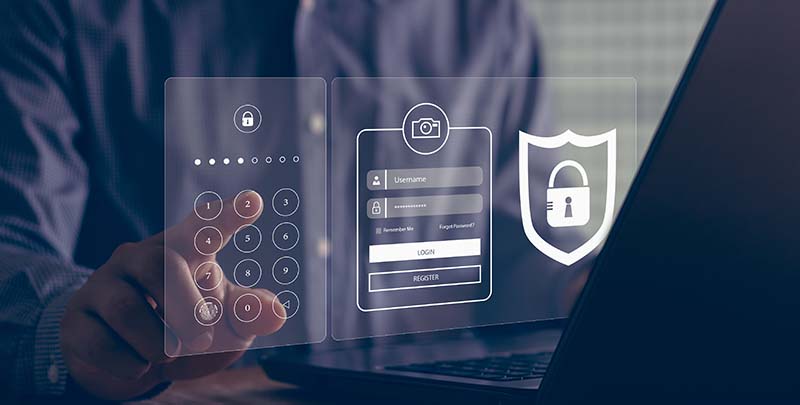In today's digital age — with the increasing prevalence of online banking and the corresponding rise in cyber threats — ensuring your financial information stays secure is important. You must protect your bank accounts from unauthorised access and potential financial loss. You can keep your bank passwords safe so that your banking credentials remain secure using many methods.
1. Use a password manager app: One of the most effective ways to store your banking passwords securely is by using a reputable password manager. You can download these apps on your smartphone or computer. They offer encrypted storage for your passwords, ensuring they are protected from unauthorised access. You can generate strong, unique passwords reducing the risk of password-related vulnerabilities. Additionally, they often include features such as auto-fill and two-factor authentication for added security.
2. Store your passwords on smartphone/computer: You can simply put all your passwords together and store them in a single document on your smartphone or computer/laptop. However, ensure that you have an added security layer in the form of a two-factor authentication. For instance, a fingerprint/facial recognition on your phone or using an encryption software to encrypt the document on your computer/laptop.
3. Store your passwords on the cloud: Storing your passwords on the cloud can provide convenient access to your login credentials from anywhere at any time and from any device with an internet connection. Moreover, you have to remember only the master password to login into your cloud account. Since the passwords are not stored on any device, it remains safe from hackers or malwares. Look for a cloud service that provides two-factor authentication for additional cybersecurity.
4. Enable two-factor authentication (2FA): This adds an extra layer of security to your online banking accounts since it is a secondary form of verification in addition to your password. This could involve receiving a code via SMS, or utilising biometric authentication methods such as fingerprint or facial recognition.
Cybersecurity tips to enhance password security
- Strong password: Create a strong and unique password that you can remember but others cannot easily guess. Avoid using common phrases or easily guessable information like your name or date of birth.
- Regularly update passwords: Set a schedule to periodically change your banking passwords, aiming for intervals of three to six months.
- Stay vigilant against phishing: Exercise caution when responding to unsolicited emails, messages, or phone calls requesting sensitive information. Verify the authenticity of communications by contacting your bank directly if you suspect foul play.
- Regular monitoring: Check your business banking transactions and account activity regularly for detecting any unauthorised access or suspicious behavior. Set up alerts and notifications for account activity, such as large withdrawals or unusual login attempts, to stay informed of any potential security breaches.
Also Read: Digital banking security: Ensuring your online transactions are safe
Conclusion
Safeguarding your banking passwords is important to ensure your financial security. By following above mentioned best practices you can significantly reduce the risk of unauthorised access to your banking accounts. Additionally, staying vigilant against phishing attempts further fortifies your defenses. Implementing these strategies will help you maintain control over your personal financial information and enjoy peace of mind in today’s digital age.
Disclaimer: This article is for information purpose only. The views expressed in this article are personal and do not necessarily constitute the views of Axis Bank Ltd. and its employees. Axis Bank Ltd. and/or the author shall not be responsible for any direct / indirect loss or liability incurred by the reader for taking any financial decisions based on the contents and information. Please consult your financial advisor before making any financial decision.








